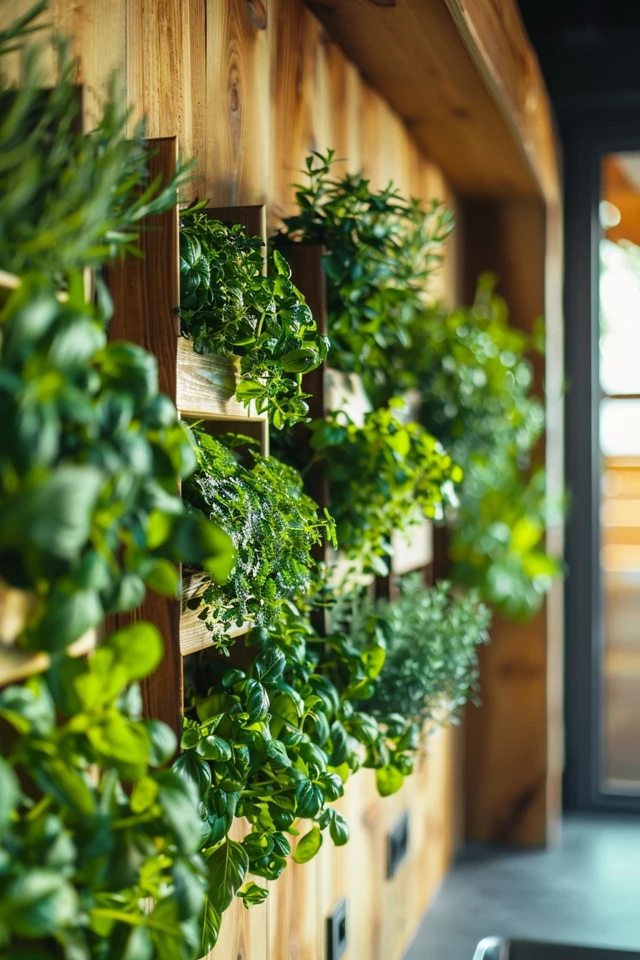Growing an outdoor herb garden requires a good understanding of proper irrigation techniques. Knowing how to water herbs, when to water them, and how much water they need is essential for maintaining their health and ensuring a bountiful yield. Taking care of your herbs involves more than just providing sunlight and soil – proper watering is key to their overall vitality and productivity.
Key Takeaways
- Adjusting watering based on local climate
- Avoid overwatering to prevent plant health issues
- Water herbs around the base to avoid excess moisture on leaves
- Follow a watering schedule based on herb species and local conditions
- Deep watering promotes strong root development and reduces frequency
How Much Water Do Herbs Need?
When it comes to watering your herb garden, it’s important to understand the water requirements of different herbs. The amount of water herbs need can vary depending on factors such as climate, sun exposure, and the specific herb species. Finding the right balance is key to ensuring healthy growth and avoiding common issues like overwatering.

Signs of Overwatering
Overwatering herbs can have detrimental effects on their health. It’s crucial to recognize the signs of overwatering to take appropriate action. Look out for wilting, yellowing leaves, and the presence of mildew or fungus on the plants. These are indicators that your herbs may be receiving more water than they can handle.
Overwatering can suffocate the roots and deprive them of essential oxygen, leading to root rot and decreased plant vitality.” – Expert Gardener
The Importance of Moderately Dry Soil
While herbs prefer moderately dry soil, it’s important to strike a balance between dryness and moisture. Herbs can tolerate some level of dryness and actually prefer it over constantly wet conditions. However, they still need enough moisture to thrive and grow. Monitoring the moisture levels of the soil is crucial to ensure your herbs are receiving the right amount of water.
Watering Tips for Herbs
- Water herbs deeply and infrequently, allowing the water to reach the root system.
- Water around the base of the herb rather than all over the leaves to avoid excess moisture and potential issues like mold or mildew growth.
- Consider using a drip irrigation system or a watering can with a spout to target the water precisely.
- Water your herbs in the morning to reduce evaporation and allow the plants to dry before nighttime.
- Adding a layer of mulch around your herbs can help retain moisture and regulate soil temperature.
By understanding the water requirements of herbs, avoiding overwatering, and following proper watering techniques, you can ensure the health and vitality of your herb garden.
How Often Should You Water Herbs?
Establishing a watering schedule for your outdoor herb garden is important. While daily watering may not be feasible, many herb gardeners find success with watering once or twice a week. The key is to avoid letting the soil around the herbs become too dry. Adjustments to the watering schedule may be necessary based on local rainfall and climate conditions. It’s important to monitor the soil moisture regularly and make sure the herbs are receiving adequate hydration without being overwatered.

Best Practices for Watering Herbs
When it comes to watering herbs, there are several best practices to follow. One of the most effective techniques is to water your herbs in the early morning. This allows the water to reach the root system efficiently, ensuring that your herbs receive the hydration they need. Additionally, watering in the morning reduces the risk of evaporation, maximizing the water’s benefits.
When watering your herbs, it’s essential to focus on watering around the base of the plant. This directs the water directly to the roots, where it is needed the most. Avoid watering all over the leaves, as this can lead to excess moisture and create an environment that is conducive to mold or mildew growth. By watering at the base, you can promote healthy herb growth while minimizing the risk of plant diseases.
Deep watering is another effective technique for herb care. Instead of frequent light sprinklings, aim to provide a thorough watering session. Deep watering encourages strong root development, allowing your herbs to establish a robust root system. This, in turn, reduces the need for frequent watering, giving you more time to enjoy your garden. Remember to monitor soil moisture levels regularly and adjust your watering routine accordingly.

In addition to the watering techniques mentioned above, adding mulch to the soil can greatly benefit your herbs. Mulch helps retain moisture in the soil, reducing water loss through evaporation. It also regulates soil temperature, creating a favorable growing environment for your herbs. Lastly, it’s important to choose the right type of container or garden bed with proper drainage to prevent waterlogging. Improper drainage can lead to root rot and other plant health issues.
By following these best practices for watering herbs – watering in the morning, focusing on the base, deep watering, adding mulch, and ensuring proper drainage – you can provide the optimal conditions for your herb garden to flourish. Remember to regularly monitor soil moisture levels and adjust your watering routine as needed to maintain healthy herb growth.

